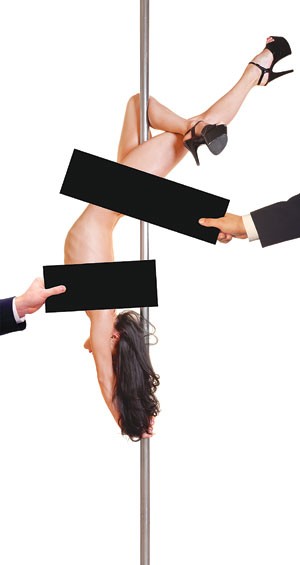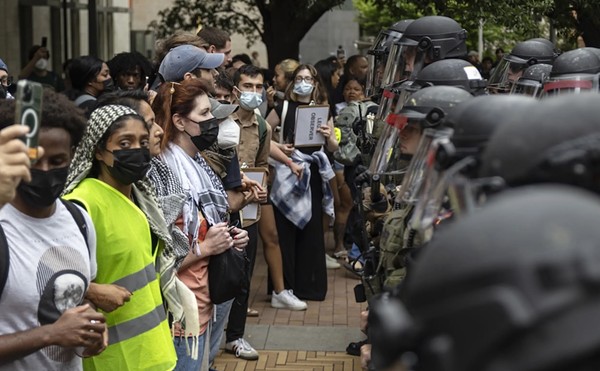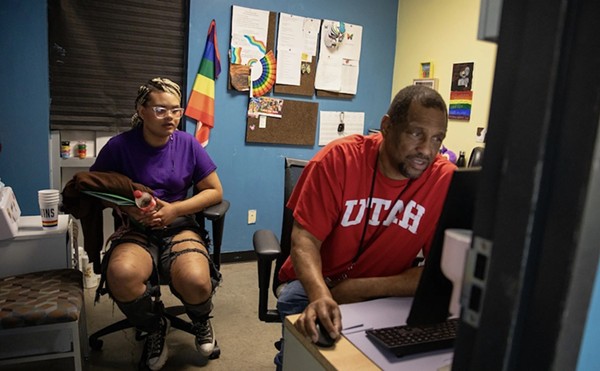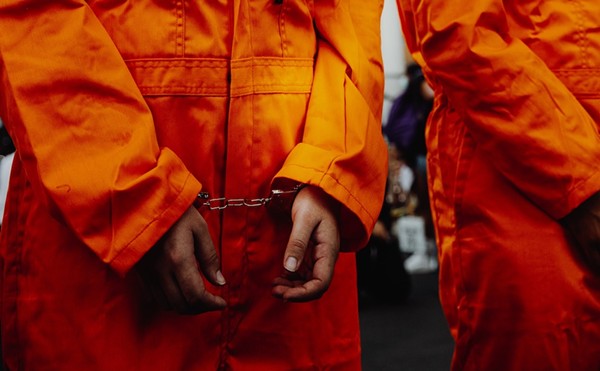City Council Thursday is set to consider tighter restrictions for strip clubs and other so-called sexually oriented businesses, just the latest move in the city's years-long fight to crack down on San Antonio's naked club scene.
The proposed changes drafted by San Antonio Police Chief William McManus and Council's Public Safety Committee would increase criminal penalties against businesses that fail to register with the city as a sexually oriented business or run afoul of the ordinance, raising violations from a Class C to Class A misdemeanor. Performers wearing anything less than a bikini would have to register as a sexually oriented business. SOBs already can't operate within 1,000 feet of schools, residential zones, churches or other places of worship, schools and parks. The changes would add licensed child care facilities to the list. The new ordinance would also require background checks for club owners and would call for periodic inspections from an SAPD vice squad.
SAPD claims the existing rules have been difficult to enforce, partly because clubs have avoided registering with the city, and therefore skirted the regulations, by employing dancers who just wear G-strings and pasties over their nipples. District 9 Councilwoman Elisa Chan recently complained to KSAT that strip club-music venue hybrid Endless Music has used the tactic to avoid registering with the city (calls to the club went unanswered Wednesday). Texas Alcoholic Beverage Commission records also show that in the past complaints have been filed against the club for having prostitution on premises.
Strip clubs have been under pressure from City Hall for nearly a decade. In 2003, Council passed an ordinance imposing annual fees on dancers, managers, and club owners, requiring each pay $50, $100, and $375, respectively, to register with SAPD. In 2005, San Antonio adopted an ordinance prohibiting strippers from dancing fully nude, while also imposing a “three feet rule” that effectively outlawed lap dances. The current ordinance also mandates tips to dancers be placed in a jar or “delivered hand-to-hand without touching and with the hand of each person extended at least one and one-half feet away from the body of that person.” (i.e. no dollar bills in G-strings).
Local nude clubs XTC Cabaret and Paradise Gentlemen's Club sued the city in 2010 over the ban on nude dancing after SAPD officers raided the clubs, arresting managers and dancers. The state's Fourth Court of Appeals ruled in favor of the city earlier this year, saying the ban on fully-nude dancers is constitutional.
“We say the San Antonio ordinance has already gone too far, that it limits expression and constitutionally-protected activity,” said Jim Deegear, who represented XTC and Paradise in their suit against the city. “The Fourth Court obviously didn't accept our reasoning, so nudity's still banned,” he said. “My clients opted not to appeal to the all-Republican Texas Supreme Court for obvious reasons.”
Deegear says he's already in contact with over a dozen local clubs who intend to challenge the new restrictions should Council pass them Thursday.
“These changes mean any club that employes dancers wearing anything less than a bikini top has to register and comply with the city's regulations, which are so draconian in their scope and penalties that nobody wants to be a sexually oriented business here,” said Deegear. “So it looks like we'll be back in court.” -- Michael Barajas



















